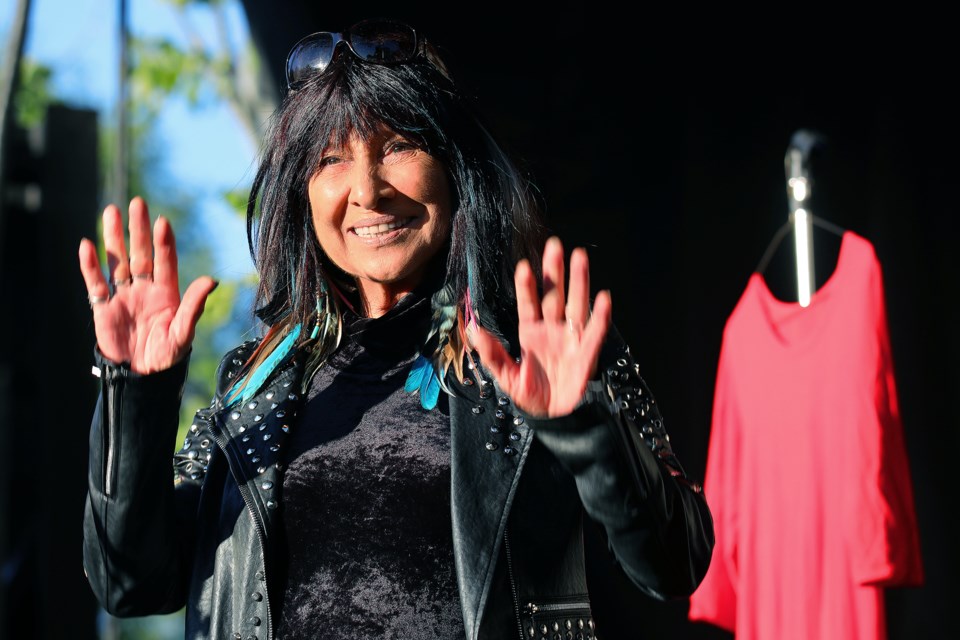Buffy Sainte-Marie: Most of us know the 82-year-old as a Canadian singer-songwriter, social activist, Indigenous cultural icon and actor.
And now, according to reporting by the CBC, they allege she's a much better actor than many may have realized.
On Friday, investigative news TV program The Fifth Estate aired its expose about her life and the myriad inconsistencies she has been accused of about her birth, childhood and ancestry.
The evidence appears to be damning.
The birth certificate Sainte-Marie claims does not exist most certainly does, and is securely stored in a government vault in a small town in Massachusetts where she was born in the United States, not in Canada, as she has claimed on many occasions.
The marriage certificate she signed in the 1980s mirrors the same information that is on that very same birth certificate she claimed does not exist.
These two bits of evidence seem to be the peak of evidence in this case, but the lesser proof that backs them up looks like the solid rock which comprises this mountain of accusations.
The CBC’s investigative track record is among the best in the journalism world, so I am inclined to believe their story, which borders on irrefutable when you look at all the evidence.
I pondered not writing this piece, as maybe this controversy is not my story to tell. I believe this scandal is one that Indigenous communities should, and no doubt will, address on their own terms.
Sainte-Marie, over the course of her 60-year career, has been a warrior for Indigenous communities, raising awareness and battling the injustices against current and past generations of First Nations people in North America.
I hope she will always be recognized for her effort no matter the outcome of this controversy. She is still a hero to me in that regard.
That being said, her accomplishments in the arts, and her origin story that is coming to light, is a whole other story, in my mind.
As a fan of her music and having watched her on Sesame Street during my childhood, I am shocked and disappointed.
What she has allegedly done could be fraud of the highest degree. She has stolen opportunities, income, awards and recognition from Indigenous artists who were sadly left behind because of this long-standing 'fakery' spanning decades.
This news saddens me after such a wonderful high recently when one of my favourite singer-songwriters, Tom Wilson, shared his opposite story of revelation after he thought he was “white” his entire life when in fact his Indigenous ancestry was hidden from him by his adoptive parents and native birth mother.
Wilson’s autobiographical book and subsequent documentary film, Beautiful Scars, was rightfully celebrated as a triumph.
It also pains me to see Indigenous people who I admire as friends, and as artists, grapple online over this scandal, this “pretendian” issue as it’s called, with the likely crumbling of an icon such as Buffy Sainte-Marie.
Some are seething while others are coming to her defence.
Tanya Tagaq, another iconic Indigenous singer-songwriter, has written on social media as I write this, of the struggle with tangled emotions and opinions about Sainte-Marie within her community, and what Buffy’s legacy could ultimately be.
“There is room for every Indigenous person and your feelings and opinions about the Buffy situation,” she writes. “Please don’t turn on each other. Be gentle with yourselves.”
My heart goes out to the Indigenous world.
And what happens next?
She has a documentary film about her life called Buffy Sainte-Marie: Carry It On, which has been nominated for an International Emmy Award. The winners will be announced on Nov 20.
How will that be dealt with under this cloud of controversy?
In an Oct. 14 podcast video interview with Terry David Mulligan, a longtime Canadian TV personality, Sainte-Marie continues to muddle her own story, where she says, “There’s been so much written down about me … there’s a lot of urban legend that’s just plain wrong.
“There was a lot that I would love to have had in the documentary, but there just plain wasn’t time,” she adds.
She goes on to tell Mulligan, “I didn’t know if I was Indigenous or not.”
In a public statement, titled "My Truth as I Know It," posted to social media on Oct. 26, Buffy refutes the findings of the investigative report by the CBC, and doubles down on her claim of Indigenous ancestry.
"What I know about my Indigenous ancestry I learned from my growing up mother, who was part Mi'kmaq, and my own research later in life," she writes.
And the question of “pretendians” — who is and who is not — or even the very definition of the term, will not be going away any time soon.
The arguments surrounding this possible modern-day Grey Owl will likely continue long into the future, no doubt.
There will be more outings of this kind, and they may not be as shocking, but they indeed need to be rooted out, whatever the social cost.
Kevin Lamb is a staff reporter at BarrieToday.





